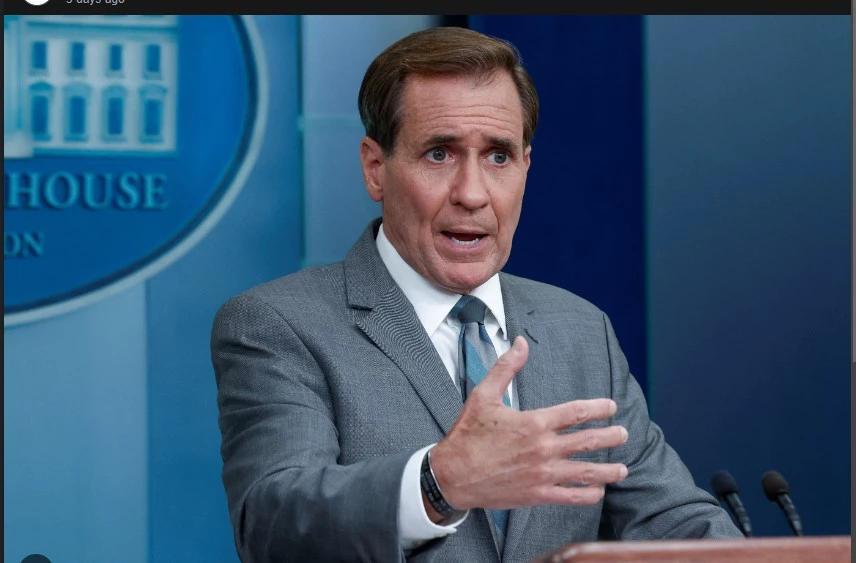Taliban terrorists using American weapons abandoned by Afghan army in attacks on Pakistan: US

Stay tuned with 24 News HD Android App

The United States has said that it is ready to work with Pakistan to counter the threat it faced from Afghanistan border, strongly rejecting suggestions that terrorists are using weapons left behind by American forces, reported 24NewsHD TV channel on Thursday.
US National Security Council spokesman John Kirby reacted sharply to the suggestion that military equipment left by American forces in Afghanistan fell into the hands of militants and created security problems for countries in the region including Pakistan. However, the spokesperson said that Washington would work with Pakistan to counter the threat it faced from Afghanistan border.
The US reaction came amid rising incidents of cross-border terrorist attacks inside Pakistan from Afghanistan. In the latest attack on Wednesday, Pakistan troops repelled a cross-border raid from Afghanistan by "hundreds" of Taliban militants.
The ensuing four-hour intense gunbattle left behind 12 terrorists dead and four Pakistani soldiers martyred.
At a briefing in Washington on Wednesday, US NSC Coordinator for Strategic Communications John Kirby discussed Biden-Harris Administration goals and priorities at the upcoming G20 Leaders’ Summit and US-ASEAN and East Asia Summits.
At one point, a journalist said, “Groups like ISIS, Al-Qaeda, and Tehrik-i-Taliban Pakistan, many others, also gained control of the military equipment, about $7 billion, left behind by American forces.”
John Kirby interrupted him with “whoa, whoa, whoa, say that last part again?”
When the journalist said that militants gained the control of the military equipment left behind by American forces in Afghanistan, Kirby stopped him there: “Just let me stop you right there.”
He then vociferously rejected the notion that the US abandoned military hardware in Afghanistan. “There was no equipment left behind by American forces. There was a small amount of equipment and some aircraft at the airport when we finished our evacuation efforts, but they were all rendered unusable as we left. In fact, the only thing that we left – we left that the Taliban could take advantage of was some airport mechanic capabilities: tow trucks and trucks with ladders on them, and that kind of things; I think some firefighting equipment.”
Kirby did admit that military equipment fell into the hands of militants saying “the equipment that you’re talking about, and I don’t mean to get pugilistic here, but it’s an important point – the equipment that people are saying the Americans left behind, that was equipment that was transferred well in advance of our departure to the Afghan National Security Forces. It belonged to the Afghan National Security Forces, because that was part of the mission that our troops were involved in Afghanistan to do in the first place, which was to train up and to support Afghan national security forces as they took charge of security in their country. And they needed equipment to do that, and so there – yeah, there was turnover of American equipment to them.”
Kirby said that Afghan forces abandoned that equipment, not the United States. “Sorry to interrupt you, but that’s an important point, and I wanted to make sure I made that,” he said.
In response to another question about President Biden’s remarks that Pakistan is the most dangerous country with the nuclear weapons, John Kirby said the Biden administration would work with Pakistan to mitigate threat from Afghanistan border. “We know that the Pakistani people continue to suffer the threat from terrorism, particularly along that border, that border with Afghanistan. And we’re going to continue to work with Pakistan – to the degree that they’re comfortable with, of course – to help address those kinds of security threats to their own people and to their own borders because it’s not an insignificant threat. There’s a – there is a lot of danger that’s still posed to the Pakistani people, and the President understands that, and he’s committed to continue to work with Pakistan.”
